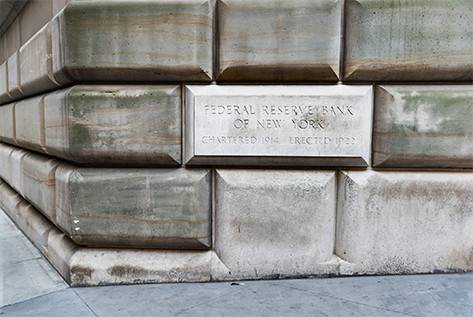Federal Reserve Chair Jerome Powell has told several aides and allies that there is no chance he will yield to President Donald Trump’s calls for him to step down, asserting his determination to endure months of unprecedented attacks from the president over his refusal to cut interest rates.
Powell has said in private conversations that staying in office is not just a personal choice but a defense of the Federal Reserve’s institutional independence, according to people familiar with those discussions. He believes resigning now would undermine the long-standing tradition of political non-interference in central banking.
Republican Senator Mike Rounds of South Dakota, who spoke with Powell personally about the issue, said: “He strongly believes it’s his responsibility to preserve that independence. I asked him, and he said no, because stepping down would weaken the Fed’s independence.”
Powell’s insistence on serving his full term through May 2026 means he remains a target of White House attacks aimed at pressuring the Fed to lower rates. This coordinated campaign has placed traditional Fed decisions under intense scrutiny and sparked new concerns about the economic fallout of political meddling in monetary policy.
Known as a calm, data-driven economist who served under President George H.W. Bush, Powell has maintained a nonpartisan reputation. His distance from day-to-day politics and moderately conservative leanings helped him gain bipartisan Senate support when Trump appointed him in 2017.
However, the pragmatic approach that once attracted Trump has now become a source of frustration. Trump has repeatedly expressed disappointment over Powell’s refusal to heed his calls for rate cuts and has not tried to win him over personally.
Earlier this month, Trump said, “I think he’s terrible. Talking to him is like talking to a chair. He has no personality.”
Jump or Boil
Trump has escalated his attacks lately, openly wishing for Powell’s resignation and accusing him of sabotaging his presidency. He has called Powell “stupid,” “a fool,” and “one of the worst appointments I’ve made.”
Trump aides and allies have echoed those criticisms and spread unsubstantiated rumors of Powell’s imminent resignation. The White House has recently zeroed in on the Fed’s $2.5 billion renovation project, launching budget probes and implying it could serve as grounds for dismissal.
On Thursday, Trump visited the Fed’s headquarters to inspect the renovations and was personally guided by Powell. During the tour, Trump again urged for rate cuts, even patting Powell on the back and joking, “I’d love you if you lowered rates.”
Trump later said, “I just want one thing: Interest rates need to come down.”
Despite his harsh critiques, Trump reaffirmed that he does not plan to fire Powell, following advisors’ warnings that such a move could rattle financial markets and spark an economic crisis.
Still, Trump’s aides are working to make Powell’s tenure “as uncomfortable as possible,” hoping to damage his credibility or force a resignation.
Trump allies view the Fed renovation as a pressure point, likening the cost to “the everyday American struggling to afford a home” — a crisis they argue rate cuts could help alleviate.
One Trump advisor said, “Every day Jerome Powell stays in Washington is a gift to the president.” Comparing the pressure to the boiling frog metaphor, he added: “Either Powell jumps, or he boils.”
A Fed spokesperson declined to comment on the report, referring only to Powell’s previous statements committing to serve his full term.
Staying Professional
Despite the pressure, Powell has told confidants that he is focused solely on doing his job and disregards the political drama.
During Trump’s visit, the interaction seemed to ease tensions briefly, with Trump calling the meeting “very productive.”
Trump later added, “I don’t want to be one of those who complains after the fact. It got out of hand, and that happens.”
But the calm may be short-lived, as the Fed is expected to keep interest rates unchanged next week, potentially delaying any policy shifts until the fall — a move likely to upset Trump, who is seeking economic stimulus ahead of the upcoming midterm elections.
Nevertheless, Powell continues to insist that the Fed’s decisions should be based purely on economic considerations, free from political influence.
Bill English, a Yale economics professor and former Fed monetary affairs director, said, “The best defense for the Fed is making the right monetary policy decisions.”
“I feel for him, but the best thing he can do now is stay the course and do his job well,” he added.
Democrats Rally Around Powell
Outside of Trump’s orbit, Powell has received renewed support from Democrats — even from those who once criticized him for hiking rates under President Biden to combat inflation.
While those rate hikes had previously raised concerns among White House and Democratic officials about triggering a recession, former officials now defend Powell, fearing the consequences of a sudden resignation.
Jared Bernstein, former head of Biden’s Council of Economic Advisers, said, “He’s putting the institution’s interests above his own. If I were 72 and being insulted by the president every day, retirement would be tempting. But I believe Powell truly sees himself as protecting the institution.”
Some Republicans have also urged the White House to stop its attacks, arguing that reduced political pressure would make any future rate cuts more effective and less controversial.
Senator Rounds said, “Most senators understand market dynamics and how damaging it would be if there were signs the Fed was being coerced.” “Powell is in the right place. It’s a tough position, but I respect him for standing firm.”


